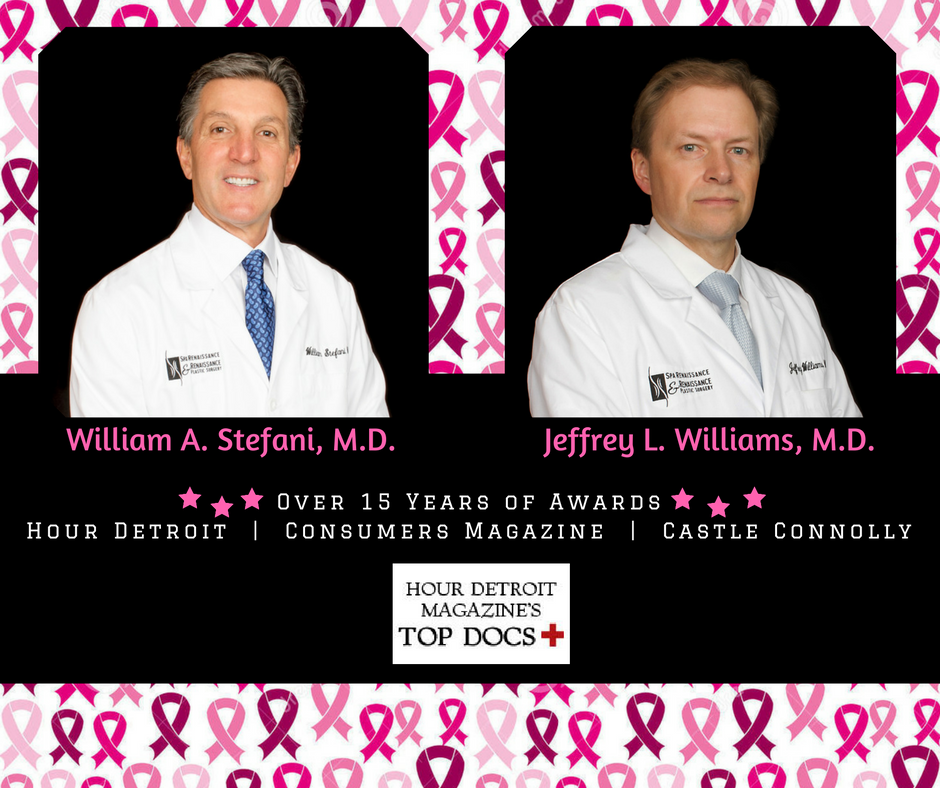Dr. William A. Stefani, F.A.C.S., cosmetic and reconstructive plastic surgeon, provides expert opinion on breast implants, their relation to ALCL and what the medical community is doing to protect and inform the public.
“We have known about a very rare form of cancer associated with breast implants called anaplastic large cell lymphoma or ALCL since 1990 when it was first reported” says Dr. Stefani. The risk of developing ALCL is about 300 in 10,000,000, so the rate is extremely low (CBSNews) and it’s generally treatable. Breast implant use is tremendously popular for breast augmentation as well as reconstruction. In 2016, augmentation solely accounted for nearly 200,000 cases in the United States and reconstruction added another 100,000.
Since the 1990’s, approximately 350 cases of ALCL have been associated with breast implants. Unfortunately, the exact number of cases is unclear due to noncompliance and reporting limitations; but we do know that of the reported cases, only 231 have information of the implant’s surface texture.
One of the predictive signs of ALCL is sudden swelling from fluid (a seroma) around the implant. This symptom typically has a better outcome than a firm mass on the capsule, with zero deaths reported, if the implant and capsule are removed.
Recently, the FDA stated that “all of the information to date still suggests women with breast implants may have a very low but increased risk of developing ALCL and therefore FDA believes the totality of evidence supports FDA-approved implants are safe and effective.” (Mentor) Additionally, our practice has cooperated with the FDA during clinical trials to influence health insurance providers into covering all aspects of breast reconstruction since the 80’s. We believe coverage is important to research, prevention, treatment, and the overall health of our patients. The overall survival rate for patients with breast cancer has significantly improved in the past 3 decades because of improvements in treatment and earlier detection. The 5-year, 10-year, and 15-year survival rates are now 89{b297e645577e0dd69ab7f3b1bc8d8a1e8222a82215a77a21e46c8d6c69a32592}, 83{b297e645577e0dd69ab7f3b1bc8d8a1e8222a82215a77a21e46c8d6c69a32592}, and 78{b297e645577e0dd69ab7f3b1bc8d8a1e8222a82215a77a21e46c8d6c69a32592}, respectively. (CA: Cancer Journal for Clinicians)
“At this point, if you have breast implants there’s no worry to have them removed; unless you notice sudden swelling or changes.” Says Dr. Stefani. Agreeably, Dr. Maggie DiNome, a breast cancer surgeon and professor at UCLA Medical Center said “Be aware, but I don’t think it should cause alarm. Just like with breast cancer, if you find a mass in your breast, go get it checked out.” (CBSNews)
About Us: Spa Renaissance & Renaissance P.S. is a full-service plastic surgery center, medical spa, hair and nail salon in Troy, Michigan. They have a wide range of providers including doctors, physician’s assistants, nurses, estheticians, and stylists. President of Renaissance Plastic Surgery, William A. Stefani, M.D., is an award-winning plastic surgeon born and educated in Metro Detroit. An established company with the heart of a small business, their presence has been a positive impact on the community for nearly 50 years.
For more information on Spa Renaissance & Renaissance Plastic Surgery please visit www.renaissanceps.com or contact Dr. Stefani and Dr. Williams.



